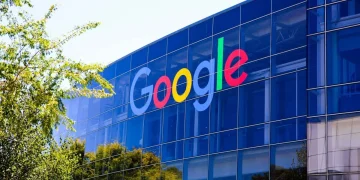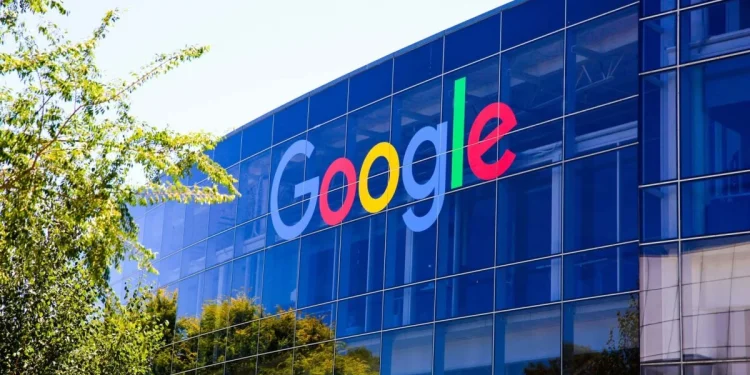TLDR:
- Jim Cramer fully exited Alphabet position, citing generative AI as an “existential threat” to Google Search
- Cramer noted younger users are bypassing Google and going straight to ChatGPT
- Google laid off hundreds of employees from its Platforms and Devices unit on Thursday
- Layoffs affected teams working on Android, Pixel phones, and Chrome browser
- Despite cuts, Google reaffirmed $75 billion capex for 2025 to expand AI infrastructure
Alphabet’s Google is navigating turbulent waters as it faces dual challenges from increasing artificial intelligence competition and internal restructuring. The tech giant recently implemented layoffs across key product teams while simultaneously battling concerns that its core search business faces disruption from generative AI tools.
On Thursday, Google laid off hundreds of employees from its Platforms and Devices unit, according to a report by The Information. The cuts primarily impacted teams responsible for major products including Android mobile operating system, Pixel smartphones, and the Chrome web browser.
GOOGL stock declined almost 4% on Thursday. Market observers attributed the drop partly to uncertainty surrounding tariffs, along with ongoing concerns about the company’s competitive position.
A Google spokesperson explained that the company has been working to become more agile and efficient since merging its Platforms and Devices teams last year. The recent job cuts follow a voluntary exit program introduced earlier in 2025 for U.S.-based staff involved in Android, Pixel, and Chrome initiatives.
AI Competition Intensifies
The layoffs come at a time when influential market commentator Jim Cramer has raised alarms about Google’s core business model. On a recent episode of Mad Money, Cramer revealed that his Charitable Trust had completely sold its position in Alphabet.
“My main concern, I think generative AI may pose an existential threat to their core search business,” Cramer explained. “I think many younger people are bypassing Google entirely and going straight to ChatGPT.”
This observation carries weight given that Google Search generates approximately $200 billion in annual revenue for the company. Any erosion of this business could have massive implications for Alphabet’s bottom line.
Cramer also categorized Alphabet in what he considers the “bottom tier” of the Magnificent 7 tech stocks. He expressed particular concern about the company’s vulnerability to advertising downturns should economic conditions worsen.
“If the tariffs cause a recession, this is another advertising-based business that will get crushed. I think it’s more vulnerable than Meta,” Cramer noted.
Strategic Pivot to AI
Despite these challenges, Google appears to be doubling down on its artificial intelligence strategy. CEO Sundar Pichai recently reaffirmed the company’s 2025 capital expenditure guidance of $75 billion, with a significant portion earmarked for AI infrastructure expansion.
The company’s leadership had previously indicated that workforce reductions would continue throughout 2025. These cuts appear to be part of a broader strategy to free up capital for growing investments in AI technologies.
Pichai stated that Google will invest heavily in chips and infrastructure to support its core services like Search. The company is also advancing AI tools such as its Gemini model, which it hopes will help it compete with other generative AI offerings.
Restructuring for Efficiency
The recent round of layoffs marks a continued push to restructure across Google’s key product lines. Earlier this year, the company also trimmed staff in its Cloud division, though those reductions were limited to a few teams.
The voluntary exit program introduced in January primarily targeted employees who faced challenges adapting to the division’s new direction or the hybrid work model. This suggests that Google is not just cutting costs but also reshaping its workforce to better align with future priorities.
Google’s restructuring efforts come at a time of growing economic uncertainties related to tariffs and increasing competition from China. However, the company appears committed to maintaining its AI investment strategy despite these headwinds.
Wall Street Remains Cautiously Optimistic
Despite the challenges facing Google, Wall Street analysts maintain a generally positive outlook on the stock. According to recent data, analysts have a Moderate Buy consensus rating on GOOGL stock based on 27 Buys and 10 Holds assigned in the past three months.
The average GOOGL price target sits at $205.15 per share, which implies a 34.24% upside potential from current levels. This suggests that despite Cramer’s concerns and the ongoing restructuring, many analysts believe the company’s long-term prospects remain solid.
Google’s job cuts signal deeper structural changes within the organization. At the same time, they raise questions about the company’s near-term financial performance as it navigates the dual challenges of cost management and competitive pressures.

















